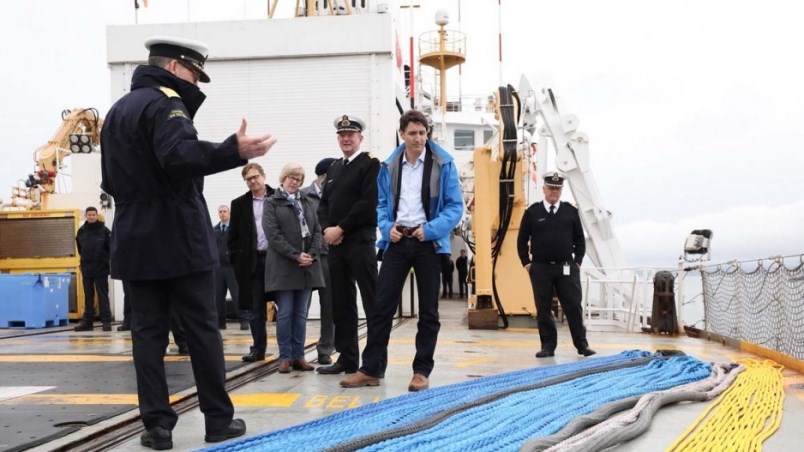Although the SNC-Lavalin lobbying brouhaha is currently sucking up most of the oxygen in Ottawa, simmering in the background is the volatile question of pipelines.
Whether to build them or keep Alberta’s oil in the ground has become arguably the single most galvanizing and politically fraught issue in Canadian politics, and it is almost certain to redraw the country’s political map.
Canada’s inability to get pipelines built and provide Alberta producers an outlet for their oil has resulted in a renewed alienation – something underscored by a recent Angus Reid survey.
When Reid’s company polled western Canadians recently, it found 35% support among respondents for the Western Canada Party – six points higher than the Conservative party scored and twice what the Liberals and NDP garnered.
Those are pretty good numbers for a party that doesn’t exist. There is, of course, no Western Canada Party. Not yet, anyway.
But support for the concept of a western political party speaks to the alienation again being felt in the West toward Ottawa.
Reid writes that “feelings of resentment towards Ottawa are higher than ever, and the potential for change in the electoral map is intensifying.”
What is different today from the east-west enmity of the 1980s is that Western Canada is no longer a region that federal politicians can ignore, Reid argues. Combined, Alberta, B.C. and Saskatchewan are economic powerhouses. And as Reid pointed out, by 2036, the four western provinces will represent one-third of Canada’s population.
Martha Hall Findlay, president of the Canada West Foundation, said it’s a mistake to consider frustration with the state of resource development in Canada as strictly a western Canadian phenomenon.
She said the frustration is felt across Canada.
“Poll after poll after poll, the majority of Canadians, outside of Quebec, support pipelines,” she said.
Pollster Mario Canseco agreed.
“There is definitely a sense of people getting tired of the stuff getting stuck,” said the Research Co. president. “There is a sentiment of ‘Are we ever going to get unanimity for these things?’ and the answer is no.”
Despite opposition to the Trans Mountain pipeline expansion from John Horgan’s BC NDP government and federal NDP Leader Jagmeet Singh, Canseco said he has noted a marked shift in attitude among NDP supporters.
“What I have seen is more level of support for specific projects coming from the NDP voter and the Liberal voter,” Canseco said.
“We went from a situation where the NDP voter was more likely to say, ‘No, let’s not do this,’ and now we’re going into a situation where the NDP voter is saying, ‘Well, we kind of have to.’”
Nationally, the ally that the Trudeau government had in Alberta with Rachel Notley’s NDP government appears doomed, thanks to the unfinished business of pipelines.
Polling suggests she will lose to Jason Kenney’s United Conservative Party. Relations between Alberta and B.C. and Ottawa could become hostile.
Should the Trudeau government fail to build the Trans Mountain pipeline expansion, Kenney could punish the Horgan government with new legislation that empowers Alberta to restrict the flow of gasoline and diesel to B.C., to free up pipeline capacity for Alberta crude oil.
B.C. has tried to have the courts declare the bill unconstitutional, but an Alberta court recently dismissed the application as being premature, because the Alberta bill has yet to be officially proclaimed.
In its court application, B.C. revealed just how serious the consequences could be if Alberta were to play hardball.
Its affidavit warned that there is no alternative supply of gasoline and diesel, and that drastic price spikes and supply shortages could cause “civil unrest” in B.C.
- Nelson Bennett, Business In Vancouver



